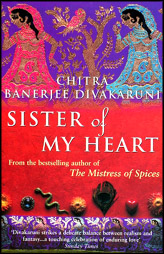The Ramayana, one of the world's greatest epics, is also a tragic love story. In this brilliant retelling, Chitra Banerjee Divakaruni places Sita at the centre of the novel: this is Sita's version. The Forest of Enchantments is also a very human story of some of the other women in the epic, often misunderstood and relegated to the margins: Kaikeyi, Surpanakha, Mandodari. A powerful comment on duty, betrayal, infidelity and honour, it is also about women's struggle to retain autonomy in a world that privileges men, as Chitra transforms an ancient story into a gripping, contemporary battle of wills. While the Ramayana resonates even today, she makes it more relevant than ever, in the underlying questions in the novel: How should women be treated by their loved ones? What are their rights in a relationship? When does a woman need to stand up and say, 'Enough!'
Chitra Banerjee Divakaruni is an award-winning and bestselling author, poet, activist and teacher of writing. Her work has been published widely, in magazines and anthologies, and her books have been translated into twenty-nine languages. Several of her works have been made into films and plays.
You need to log in to Rate the book
The story of Ramayana, its wonders and lessons are ingrained in our lives as Indians. It is a remarkable piece of literature, rightly an epic, a timeless legend. But as is the case with most ancient texts it is steeped in patriarchy and a sense of injustice and unfairness forver stains its otherwise holy pages. Chitra Banerjee Divakaruni promises to undo the injustice, promises to give voice to the voiceless and neglected females of the legend. "Write our story, too,” Sita hears the voices of the female characters of Ramayana “For always we’ve been pushed into corners, trivialised, misunderstood, blamed, forgotten – or maligned and used as cautionary tales". Thus the prologue offers a lot of promise.











































